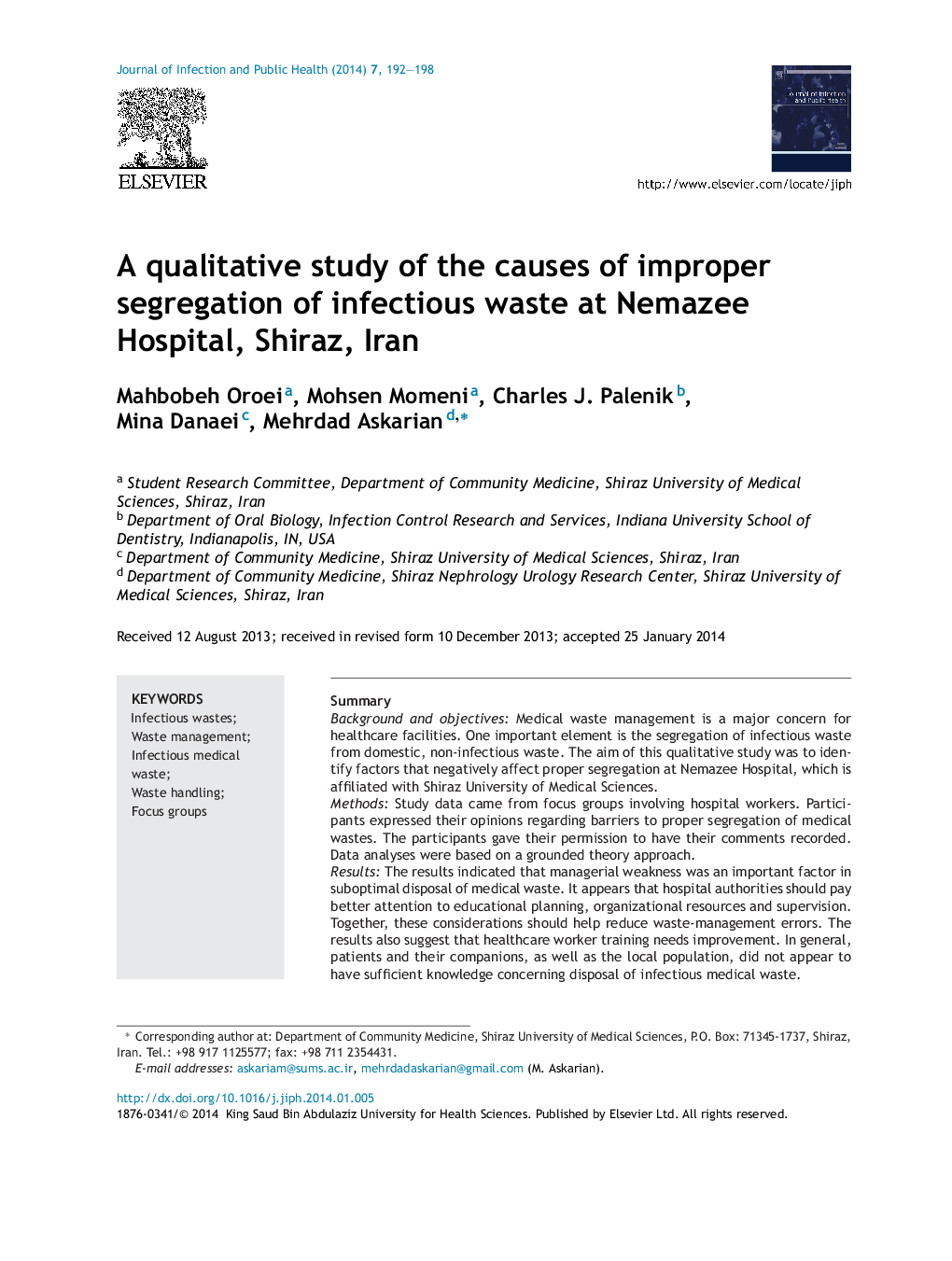| Article ID | Journal | Published Year | Pages | File Type |
|---|---|---|---|---|
| 3405940 | Journal of Infection and Public Health | 2014 | 7 Pages |
SummaryBackground and objectivesMedical waste management is a major concern for healthcare facilities. One important element is the segregation of infectious waste from domestic, non-infectious waste. The aim of this qualitative study was to identify factors that negatively affect proper segregation at Nemazee Hospital, which is affiliated with Shiraz University of Medical Sciences.MethodsStudy data came from focus groups involving hospital workers. Participants expressed their opinions regarding barriers to proper segregation of medical wastes. The participants gave their permission to have their comments recorded. Data analyses were based on a grounded theory approach.ResultsThe results indicated that managerial weakness was an important factor in suboptimal disposal of medical waste. It appears that hospital authorities should pay better attention to educational planning, organizational resources and supervision. Together, these considerations should help reduce waste-management errors. The results also suggest that healthcare worker training needs improvement. In general, patients and their companions, as well as the local population, did not appear to have sufficient knowledge concerning disposal of infectious medical waste.ConclusionsHospital authorities should conduct a broad review of medical waste management, including improved employee training. This step should have a positive effect on local health, as well as the environment. Improvement is also needed in the infection prevention performance of hospital healthcare workers. This approach should reduce additional production of infectious waste and costs associated with healthcare.
